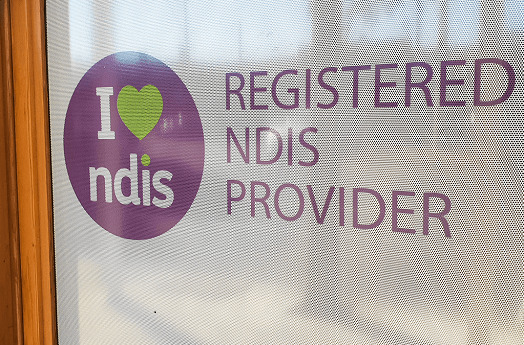In today’s fast-paced digital world, staying connected is more important than ever. Whether you’re working from home, streaming your favourite shows, or managing a business on the go, having a reliable internet connection is essential.
Mobile broadband has become a popular option for those who need internet access without being tied to a fixed location. But with so many mobile broadband for business plans available, how do you choose the best one for your needs? In this blog, we’ll break down the key factors to consider when selecting the ideal mobile broadband plan.
Understand Your Data Needs
Before diving into the details of mobile broadband plans, the first step is to assess your data usage. Different activities consume different amounts of data, so understanding your habits can help you avoid paying for more than you need or running out of data too soon.
- Light Usage: If you primarily use the internet for checking emails, browsing the web, or using social media, a plan with around 5-10GB per month may be sufficient.
- Moderate Usage: Streaming videos, online shopping, and regular video calls require more data. In this case, consider plans with 20-50GB of data.
- Heavy Usage: For gamers, frequent video streamers, or those who need internet for remote work involving large file transfers, you might need 100GB or more, or even an unlimited data plan.
Take stock of your online activities and choose a plan that aligns with your actual data needs. If you’re unsure, many providers offer data calculators to estimate how much data you use based on your habits.
Check Network Coverage in Your Area
Mobile broadband works on the same cellular networks as mobile phones, which means coverage can vary depending on where you are located. Before committing to a plan, make sure the provider offers strong coverage in the areas where you’ll use it the most—whether at home, work, or while travelling.
Most major carriers provide coverage maps on their websites, showing the strength of their networks in different locations. Prioritise phone systems for business networks that offer reliable 4G LTE or 5G coverage, especially if you’re looking for faster speeds. Keep in mind that rural areas may have limited coverage, so check for any gaps that might affect your experience.
Consider Speed and Performance
The speed of your mobile broadband connection can make a big difference in your online experience. Mobile broadband speeds vary based on factors like network technology (4G vs. 5G), congestion, and your location relative to cell towers.
- 4G Plans: These typically offer speeds of around 10-50Mbps, which is suitable for most online activities, including streaming and video conferencing.
- 5G Plans: If available in your area, 5G offers significantly faster speeds, sometimes exceeding 100Mbps, which is perfect for heavy internet users or those who need low-latency connections for gaming or work.
It’s important to choose a plan that not only fits your data needs but also provides the speed necessary for your activities. Look for customer mobile broadband for business reviews or performance reports in your area to get a sense of how reliable the network is during peak usage times.
Flexibility and Contract Terms
Mobile broadband plans come with a variety of contract options, ranging from no-contract, prepaid plans to long-term commitments. Think about how much flexibility you need.
- Prepaid Plans: Ideal for users who want flexibility and don’t want to commit to a long-term contract. These plans typically offer month-to-month service, allowing you to cancel or switch providers without penalties.
- Postpaid Plans: These often come with a 12 or 24-month contract and may offer better rates or additional perks like discounted hardware (routers, dongles, or SIM cards). However, they require a commitment, and early termination fees may apply if you cancel before the contract ends.
If you’re unsure about how long you’ll need the service, a prepaid plan might be the safer option. However, if you’re confident that mobile broadband will be your long-term solution, a postpaid plan might offer better value.
Device Compatibility and Hardware
Mobile broadband requires specific hardware to connect your devices to the internet. The type of device you need will depend on the plan and the number of devices you plan to connect.
- Mobile Wi-Fi Routers (Mi-Fi): These portable devices can connect multiple devices (phones, laptops, tablets) to the internet simultaneously, making them ideal for families or users who travel often.
- USB Dongles: A simpler option that plugs directly into a laptop or desktop computer, providing internet access to a single device.
- SIM-Only Plans: If you already have a compatible device, some providers offer SIM-only plans, allowing you to insert a SIM card into your mobile router or tablet.
When choosing a phone systems for business plan, check whether the provider includes the necessary hardware, or if you’ll need to purchase it separately. Some providers bundle routers or dongles with their plans, while others offer them as optional add-ons.
Cost and Value for Money
Lastly, price is always a crucial factor when choosing a mobile broadband plan. The cost of plans varies based on data limits, network speed, and included hardware. Make sure you’re getting good value by comparing:
- Cost per GB: Some plans might appear cheaper but offer less data. Break down the price by cost per GB to ensure you’re getting the best deal.
- Introductory Discounts and Perks: Many providers offer discounted rates for the first few months or include extra perks like streaming service subscriptions or bonus data.
- Additional Fees: Watch out for hidden costs such as activation fees, early termination fees, or overage charges if you exceed your data allowance.
Always weigh the cost against the features you’re getting to ensure you’re not overpaying for features you don’t need.
Final Words
Choosing the best mobile broadband for business requires a bit of research, but by understanding your data needs, checking coverage, evaluating speed, and considering costs, you can find a plan that fits your lifestyle.
Whether you’re a light user who only needs occasional internet access or a heavy user who relies on fast, reliable connectivity, there’s a mobile broadband plan out there for you. Make sure to regularly reassess your needs and adjust your plan accordingly as your usage patterns evolve.





